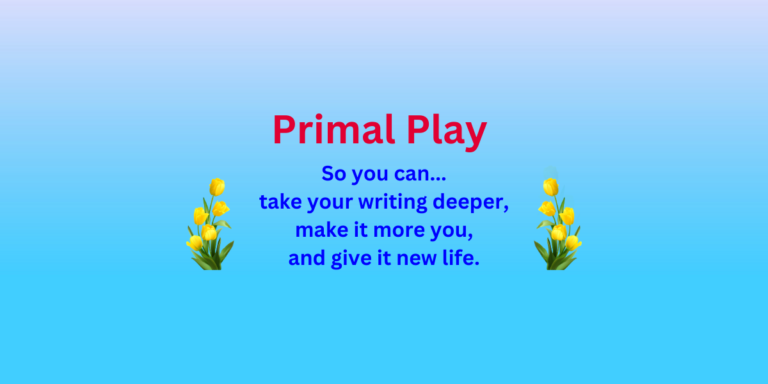4.2 Ask for heartfelt responses not shallow opinions
Sara, a friend of mine, was writing a memoir filled with stories, some tender, some funny, some excruciating. She told me she needed to get feedback but she didn’t want “attack criticism.” Her writing revealed so much about her inner life that she felt vulnerable.
So I suggested we do a Response Group. Here’s how that worked.
We each looked through our list of contacts and together picked seven women we thought were in her target market.
We invited them to join us for two hours on a Sunday afternoon in the community room at the local library.
I arranged their chairs in a semicircle and once they were seated, Sara sat down in front of them and read a story for ten minutes.
Then she went to the back of the room and I took her place.
I asked for responses. Not opinions, not judgments, not criticism, but…
Personal responses.
I asked these women to tell us the truth, positive, negative, and everything in between. I said it was okay for them to have contradictory responses, for example to like something and not like it at the same time.
As each person responded, I engaged her with…
Deepening questions.
Then after about fifteen minutes, Sara came back and read another story. And so it went for the two hours.
What was the result?
Six of the seven women had tears in their eyes at some point either during the reading or the responses.
They were eager to be asked the deepening questions. They were surprised at how much they had to say and how rich their responses were.
At the end, they stayed around. No one was in a rush to leave. They wanted to talk some more. They went out of their way to thank us for inviting them. There was a sweetness in the air.
Sara, who had thought she was going to need a bunch of these groups, told me that this one was enough. She could tell she was on the right track and she was fired up and ready to get back to work in the morning.
What was the magic?
Sara heard…
Heartfelt, in-the-moment, unpolished I-statements.
Instead of asking these seven women to step back and issue opinions from a safe distance, we asked them to go deeper into their feelings, which meant…
They matched Sara’s vulnerability with their own.
And as they went deeper into their responses…
They took Sara deeper into her writing.
I’ve noticed that if you ask people for criticism, they switch into judgement mode.
But when you ask for responses, the odds are good that people will step into…
A mood of advocacy.
Now let me add a word about preparation. A response group is designed to go deep with potential readers.
Which is not the same thing as getting critical feedback from other writers or writing teachers.
If you want to try a response group, I recommend you make sure you’ve got the basics handled first. You don’t want run-on sentences or confusing dialogue or grammar errors to distract people. You want them to focus on the heart of your writing.
Sara is an happy example of what it’s like when you get positive responses. But what if the feedback you get is lackluster or disappointing?
There are still good reasons for doing a Response Group.
First, you get real responses from potential readers so you’ll know what to work on to make a better connection with them.
Second, your friend, the facilitator, will help guide the responses so they’re helpful not hurtful.
Third, you’re not alone. Your friend will be there for you after the group to help you work through your feelings and think through the next step you want to take with your writing.
Some writing teachers recommend that you create an avatar of your reader, and that’s a good thing to do.
But my favorite part of a Response Group is that your readers are right there in person.
You get to sit with them…
Inside your stories or your message.
You get to feel their warmth. You get to see they want you to win. They really want that.
PS: The word “feedback” covers a wide range of different things. You might ask for comments on your work and get people popping off with opinions that are shallow and unhelpful.
The best feedback is a serious art. It takes work to get good at it.
So I recommend if you want feedback, which we all need on our work, that you be smart and strategic and find someone who has put in the effort to develop mastery. Settle for nothing less than…
Thoughtful feedback given in a nurturing way with the purpose of helping you become more you in your writing.
In that spirit, here’s a YouTube video you can check out if you want:
https://www.youtube.com/watch?v=NTZK0p-ekSA

